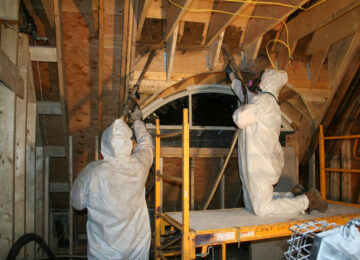E-waste recycling is vital to the global environment. Without it, we would be over-exploiting precious metals from our planet’s soil, which can harm the environment by leaving a wasteland and polluting our water sources.
The groundwater becomes contaminated with chemicals and heavy metals from discarded e-waste, making drinking dangerous for both people and animals. Dealing poisonous vapors into the air and soil also contributes to pollution.
Saves Resources
Computer recycling services allow businesses, medical facilities, and individuals to recycle obsolete computers, laptops, cell phones, and PCs. In doing so, they save money on energy and raw materials that would otherwise be needed to manufacture new computers. This is because recycled computer parts can be reused for a long time and require less energy and raw material to create than manufacturing new computers from the ground up.
E-waste recycling also helps to keep toxic chemicals from leaching into the soil and contaminating bodies of water. These chemicals are a danger to plants and animals that live in and around the water supply and can also make people sick.
In addition, by recycling e-waste, toxic gases released while the burning of non-recycled electronics are prevented from entering the atmosphere. These gases can be deadly to humans and animals that breathe them. In addition, separating the components of old computers and other electronic devices allows for recovering valuable metals such as copper, gold, and silver. These can be more easily extracted from old e-waste than from mining ores.
Prevents Pollution
In addition to protecting the environment, recycling electronics helps to conserve energy and raw materials. This helps reduce the pollution produced when energy and raw materials are used to manufacture new products.
Computers and other electronic devices thrown away without recycling can leak toxic chemicals into the soil and water supply. People and animals can also inhale these harmful chemicals. They can also contribute to air pollution.
Many computers in landfills contain dangerous metals like lead, mercury, and cadmium. These toxic compounds can leach into the groundwater and contaminate drinking water sources. The chemicals can also be burned, which produces air pollution. Knowledgeable recyclers can use the metals and plastics from old and broken electronics to manufacture new consumer products, which helps reduce the amount of discarded waste. They can also perform a US Department of Defense standard wipe or physical destruction on data drives, which helps to protect sensitive information and comply with industry standards and regulations.
Saves Energy
Computer recycling services reduce the amount of electronic waste that goes into landfills. This is because it conserves resources like rare earth metals, plastics, and precious metals that would otherwise be wasted after their useful life ends. It also saves the energy needed to mine these materials from the ground, lowering our environmental impact.
As technology advances and newer cell phones and computers are introduced, older devices become obsolete and end up in the trash. This is known as e-waste, making up one of the fastest-growing segments of our waste stream.
Many companies offer various services for their customers designed to protect the environment, recycle valuable materials and help their community. This includes various e-waste drop-off solutions, containers for high-volume e-waste generators, and data destruction that ensures sensitive information is wiped or physically destroyed before being recycled or donated. They also work with businesses to protect employee and consumer privacy while remaining compliant with state & federal information security guidelines.
Creates Jobs
Many companies specializing in computer recycling use a detailed process to sort through the equipment and identify all hazardous materials. This is a very labor-intensive task that requires training and product knowledge. This creates jobs and brings economic stability to our communities, ultimately benefiting the country.
After removing hazardous materials, the equipment is fed into a large industrial shredder. This is crucial because it ensures that all hazardous materials are properly disposed of. This process also prepares the equipment for the next steps of the computer recycling procedure.
In this stage, the equipment is separated into various metals. These metals are then reused in the manufacturing of new electronics. This saves the manufacturers from having to mine or exploit other natural resources that would cause harm to the environment. It also keeps these toxic elements from polluting bodies of water that may otherwise cause health problems.











